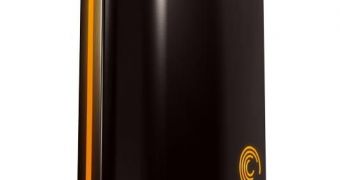Seagate's Free Agent drive is known for its reluctance regarding operating systems. Shortly, the hard drive won't work correctly with Linux and Mac operating systems (this means that only Microsoft's Windows stands a chance), due to a nifty feature built into the hard disk, namely the sleep timer. This should have been a true gold mine for notebook users, since sending the hard drive to sleep when unused would spare the battery.
The issue is that, when the disk is going in sleep mode, the USB connection is dropped, and upon restart, there's a high chance that the USB2 becomes USB1, which renders the disk useless. Many of the customers have complained about this erratic behavior, but Seagate has decided that ignoring is the best policy. Until now...
Seagate has issued today a fix for the unfortunate customers running Linux. According to Nathan Papadopulos, Seagate spokesman, all Seagate and Maxtor branded external storage drives feature a power management that puts the drive into a sleep mode after 15 minutes of idle time. The issue occurs when Linux can not wake the drive up once in sleep mode. To return to an operational state, the disk must enter the full-power state, which can be achieved by unplugging the disk and then re-connecting it into a spare USB port.
The second workaround needs the Free Agent to be connected to a Windows machine. In the Seagate FreeAgent Tools application utility, users should select Utilities, then set the Adjust Drive Sleep Interval option to Never. Another click on the Apply button will solve the issue permanently.
The Seagate spokesman denied that the company would willingly ignore their Linux users, since the Maxtor OneTouch 4 Plus and OneTouch 4 Mini ship with a Linux boot CD to be used with Maxtor Safety Drill. The Free Agent series is the only reluctant one when it comes to Linux and Mac.

 14 DAY TRIAL //
14 DAY TRIAL //